Post
A catch
Save a catch to start your fishing logbook. You will be able to to share it with the community if yo want!
A fishing trip
Post an ad to go fishing with other fishermen
Save a catch to start your fishing logbook. You will be able to to share it with the community if yo want!
Post an ad to go fishing with other fishermen
Share a thought, a question with the community
My favorite cities
×Join our 55 fishermen in Aridhglas in Argyll and Bute. The fishing forecast is currently 4.6. The most caught fishes here are the weever fish, the conger eel, the haddock fish and the bull huss. Come try the most famous fishing techniques like the cast fishing with dough, where to fish for mullet ? , fly fishing for trout or cast fishing on the edge for mackerel.
Our fishing forecast of Aridhglas indicates the best time to go fishing in this city.
The Weever fish
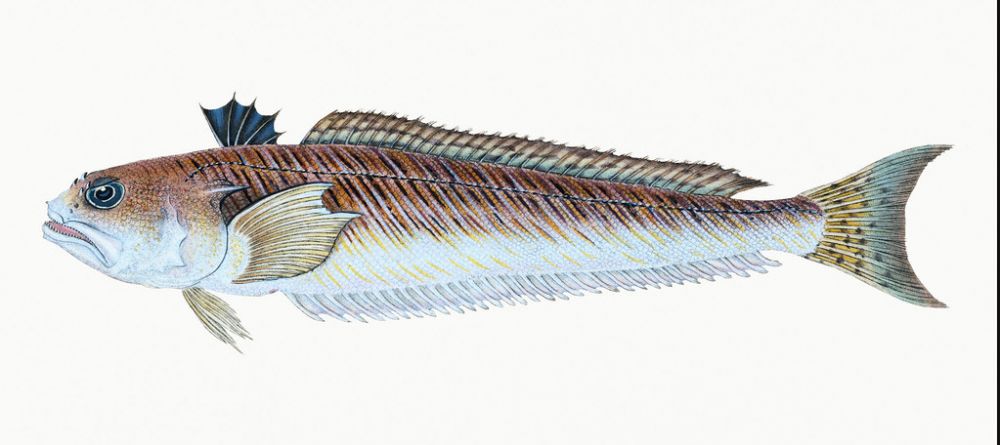
The Weever fish belongs to the Trachinidae family. The Weever fish form a family of perciform marine fish, the Trachinidae, which includes nine species. Their sizes vary from 15 cm to more than 50 cm depending on the species. The Nine species are: The Lesser weever, the Spotted weever, the Guinean weever, the Sailfin weever, the Trachinus cornutus, the Greater weever, the Striped weever, the Cape Verde weever and the Starry weever. It can be fished during the hot seasons. The Weever fish can be classified into two categories, on the one hand the small Vive which measures less than 15 cm, and the large Vive, measuring on average 2 to 30 cm and can reach 50 cm in length. The large weever differs from the small one in that it has four thorns in its orbits. The weever is always dangerous, in that it is endowed with erectile spines are the bite is very toxic, which can have long-term consequences in humans. The weever is yellow on the back, with a whitish belly and yellow or brown streaks. Accidents are much more frequent since the weever is often buried in the sand, so the risk is greater, as you may step on it and get stung.
The Weever fish is a famous fish you can catch in Aridhglas.The Conger Eel
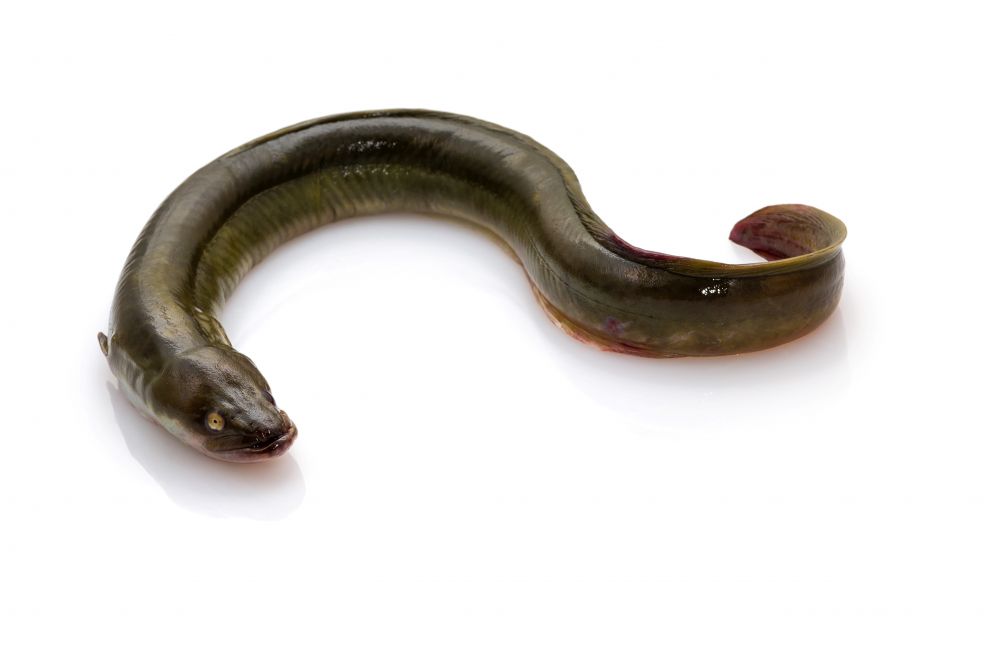
The Conger Eel belongs to the Anguillidae family. Its average size is 40 to 150 cm for an average weight of 4 kg. It has a life span of 50 years old. They breed from spring to summer. The best period to fish for Conger Eel is from April to September at night. Snake-shaped, oval body and the rear part is vertically compressed. The skin is relatively thick and covered with mucus that covers the scales. The lower jaw is longer than the upper and the nostrils are tubular. The dorsal and anal fins merge with the caudal fin and this all forms a single continuous fin that starts well behind the pectoral fins. There is no pelvic fin. Back brown-green with yellowish belly for yellow eel but back black with silver belly for silver eel. It turns black with a silver belly in silver eels for individuals ready to migrate to the Sargasso Sea.
The Conger Eel is a famous fish you can catch in Aridhglas.The Haddock fish
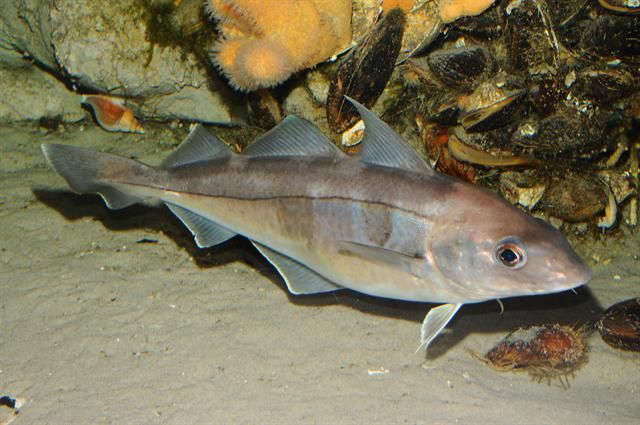
The Haddock fish belongs to the Gadidae family. The average size of haddock is 30 to 50 cm. It can measure up to 1.20 m and weigh up to 14 Kg and can live until the age of 20 years. It reproduces in spring. The female can respond to up to 3,000,000 eggs. This fish can be caught all year round outside of spawning periods. Like all coastal fish of which it is a part, haddock has three dorsal fins and two anal fins. Its body is more or less dark, crossed by a black lateral line and characterized by its silvery reflections. Its belly has a lighter shade on its back, it can be olive green and sometimes black. Two distinctive features for this fish: the black spot at the base of its pectoral fin and a small barbel on its lower jaw.
The Haddock fish is a famous fish you can catch in Aridhglas.The Bull Huss
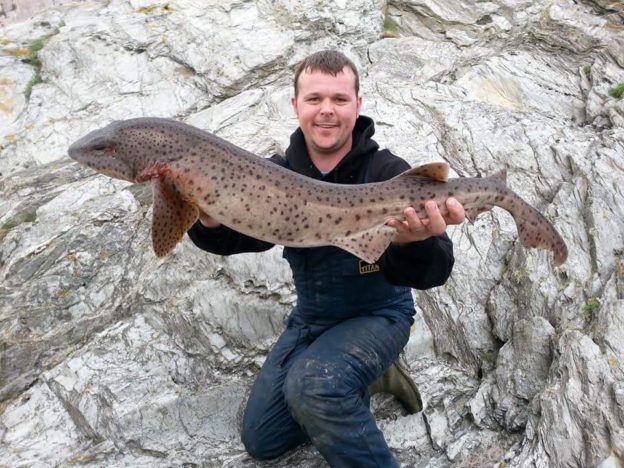
The Bull Huss belongs to the Scyliorhinidae family. Small in size, they usually measure 60 to 80 cm, although there are larger ones, since they can reach 1.5 m in the Mediterranean and 2 m in the Atlantic. This fish can live for 75 years. It spawns a hundred eggs all year round, especially in the late winter and in July. It is abundant every day of the year. This fish is not really active but still is hard to catch. The upper part of the Bull Huss is light brown in color, covered with small dark brown spots. Because of this pattern of spots, it is also called spotted cat shark. The part of the flank is white and grey. The mouth and nose holes are below his obtuse head. The particularity of the Bull Huss is that its nostrils are linked to the mouth by a curved line.
The Bull Huss is a famous fish you can catch in Aridhglas.The Sting Ray fish
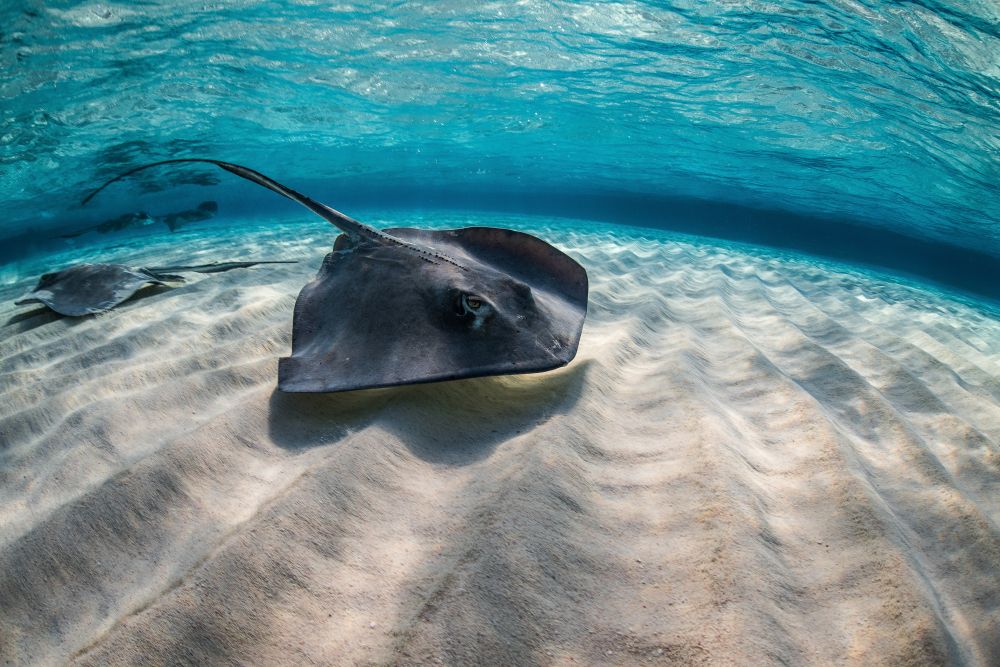
The Sting Ray fish belongs to the Dasyatidae family. The total length of this line is generally greater than 1 m, with a weight of 15 to 20 kg. The maximum known length is 2.50 m. The maximum lifespan is 20 years. Breeding usually takes place in summer. The female gives birth to 4 to 9 young. It can be fished all year round. The body of the sting ray is flattened, diamond-shaped, pointed at the front, with large pectoral fins: it is as wide as it is long. The tail, representing 60% of the total length, looks like a whip and, at one third of its base, it has a serrated spine, connected to venomous glands under the skin. The dorsal surface is bluish grey or reddish-grey in color, sometimes with white spots. This back is smooth, without tubers. The ventral side is clear. The sting ray has no dorsal fin or caudal fin and its pelvic fins are very small. The eyes are located on the dorsal surface while the mouth, nostrils and gill slits (five slits on each side) are on the ventral surface. The eyes are prominent, which gives him a very wide field of vision. Next to the eyes, an inhalant valve, called a spiracle, carries water into the gills. The mouth is located quite far back. Teeth are numerous and small, pointed in males and molar-shaped in females. The tail acts as a simple rudder and is not used for movement. It is done by the large pectoral fins, by beating. These fins are also used for burying in sand.
The Sting Ray fish is a famous fish you can catch in Aridhglas.Our fishing forecast of Aridhglas indicates the best time to go fishing in this city.
Our fishing forecast of Aridhglas indicates the best time to go fishing in this city.
Our fishing forecast of Aridhglas indicates the best time to go fishing in this city.
